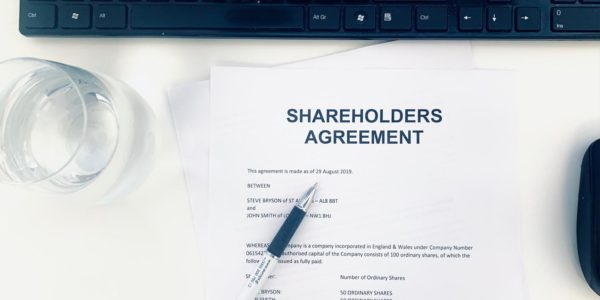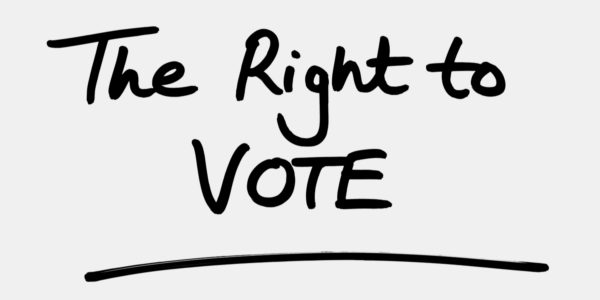Prescribed particulars define the specific rights attached to each class (type) of share that a company issues to its shareholders. They describe how much power a shareholder has in the company and whether they are entitled to any distributions of profit and capital.
Below, we explain what shareholder rights the prescribed particulars cover, where this information is recorded, and when companies are required to provide information on their prescribed particulars to Companies House.
What are prescribed particulars?
When companies issue shares, they issue one or more share ‘classes’ (types of shares). Each type of share provides certain rights to the shareholders who own them. Prescribed particulars describe exactly what these rights are, as well as any conditions or restrictions attached to the shares.
The prescribed particulars refer to shareholders’ voting rights, dividend rights, capital rights, and redeemable rights. They are defined in the Companies (Shares and Share Capital) Order 2009 as follows:
“Particulars of any voting rights attached to the shares, including rights that arise only in certain circumstances”
The prescribed particulars of any voting rights attached to a share class should specify whether or not the shareholder is entitled to vote on certain company decisions at general meetings and, if so, how many votes they get.
Voting rights may also stipulate when and in what circumstances the shareholder is entitled to vote.
The most common type of share class (ordinary shares) provides one vote per share. However, other share classes carry multiple votes per share, provide voting rights only in certain circumstances, or have no voting rights at all (i.e. non-voting shares).
“Particulars of any rights attached to the shares, as respects dividends, to participate in a distribution”
Dividends are payments that a company makes to its shareholders when it has profit available for distribution. The particulars of any dividend rights usually specify whether or not the shareholder is entitled to dividend payments.
“Particulars of any rights attached to the shares, as respects capital, to participate in a distribution (including on winding up)”
The particulars of these rights should set out whether or not the shareholder is entitled to a distribution of remaining capital when a company is wound up or insolvent, and if they have preference over other shareholders.
“Whether the shares are to be redeemed or are liable to be redeemed at the option of the company or the shareholder”
If a company issues redeemable shares, it can choose to redeem them at any time. Where this applies, the particulars must specify the terms, conditions, and manner of redemption.
Where must companies record their prescribed particulars?
Companies usually record their prescribed particulars of rights attached to issued shares in their articles of association and, if one exists, a shareholders’ agreement.
Articles are publicly available on the central register at Companies House, but the shareholders’ agreement is a private document between the parties involved.
Prescribed particulars relating to any changes made to issued shares after incorporation can also be found in company resolutions and/or minutes of meetings.
Do I have to provide prescribed particulars to Companies House?
Companies must provide prescribed particulars to Companies House on a statement of capital as part of the incorporation process. This information is also required when making any of the following changes after company formation:
- creating a new share class
- varying the rights of an existing share class
- upon the allotment of shares (i.e. issuing more shares)
- a re-designation of shares (i.e. converting existing shares from one class to another)
- consolidating or subdividing existing shares
- upon a re-denomination of share capital
- on a reduction of share capital
- redemption of shares
- cancellation of shares after a buyback
- converting an unlimited company to a limited company
If any changes relating to shares are not reported to Companies House at the time they take place, the required information should be provided on the next confirmation statement.
The wording of prescribed particulars
Companies House will reject a company formation application and any other form in which prescribed particulars are required, if the prescribed particulars are not entered in full. Similarly, if Companies House is instructed to refer to another document for information on share rights, for example:
- “please refer to the articles of association for share rights”
- “prescribed particulars as set out in the articles”
- “not applicable”
- “pari passu”
Instead, you should follow these rules:
- Provide full details of rights for every class of share the company issues
- Ensure the information you provide is meaningful and does not require reference to another document, or the legislation, to view the relevant information (e.g. “refer to articles” or “as per the Companies Act 2006”)
- Show details of voting rights, dividend rights, distribution rights on winding up, and (if applicable) capital distribution or redemption rights
Companies House provides the following statement as an example of acceptable wording for the prescribed particulars of rights for a private company limited by shares adopting Model articles of association:
“Ordinary shares have full rights in the company with respect to voting, dividends and distributions.”
However, there are no standard officially prescribed particulars. Companies are responsible for creating their own, in accordance with the rights assigned to each share class they decide to issue.
Quality Company Formations provides a range of services to assist you in introducing multiple share classes. In addition to our Multiple Share Class Package, we also offer an article drafting service in tandem with the package, which allows you to insert alphabet share classes directly into your articles, to be included at the point of incorporation. Alternatively, if you have already formed your company, our Conversion to Multiple Share Class Service (starting from just £149.99 plus VAT) provides you with a new set of articles of association, together with the restructuring of the shares already in issue.
Thanks for reading
If you have any questions about this topic or need advice on setting up a company limited by shares, please leave a comment below or contact our company formation team.
Please note that the information provided in this article is for general informational purposes only and does not constitute legal, tax, or professional advice. While our aim is that the content is accurate and up to date, it should not be relied upon as a substitute for tailored advice from qualified professionals. We strongly recommend that you seek independent legal and tax advice specific to your circumstances before acting on any information contained in this article. We accept no responsibility or liability for any loss or damage that may result from your reliance on the information provided in this article. Use of the information contained in this article is entirely at your own risk.










Join The Discussion